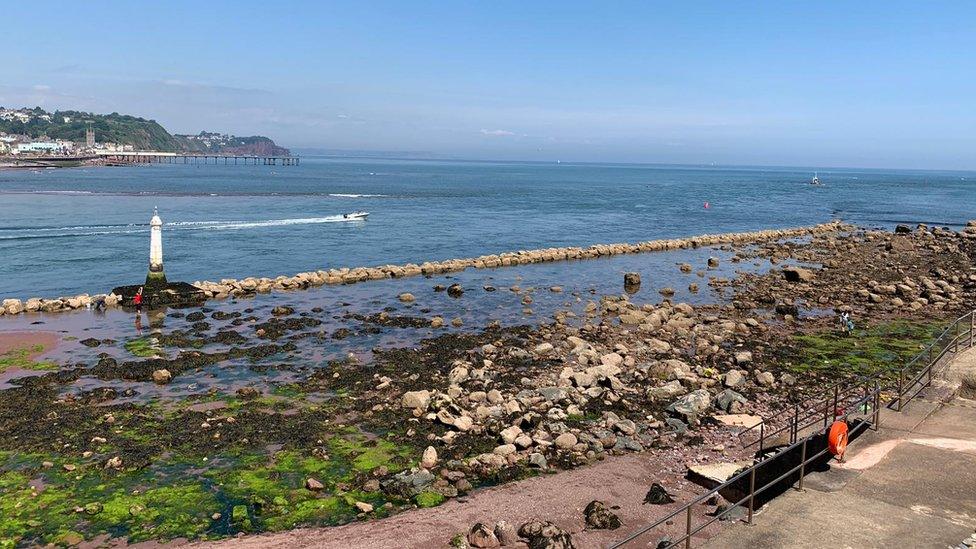Coronavirus: Safety warning issued after beach and river deaths
- Published
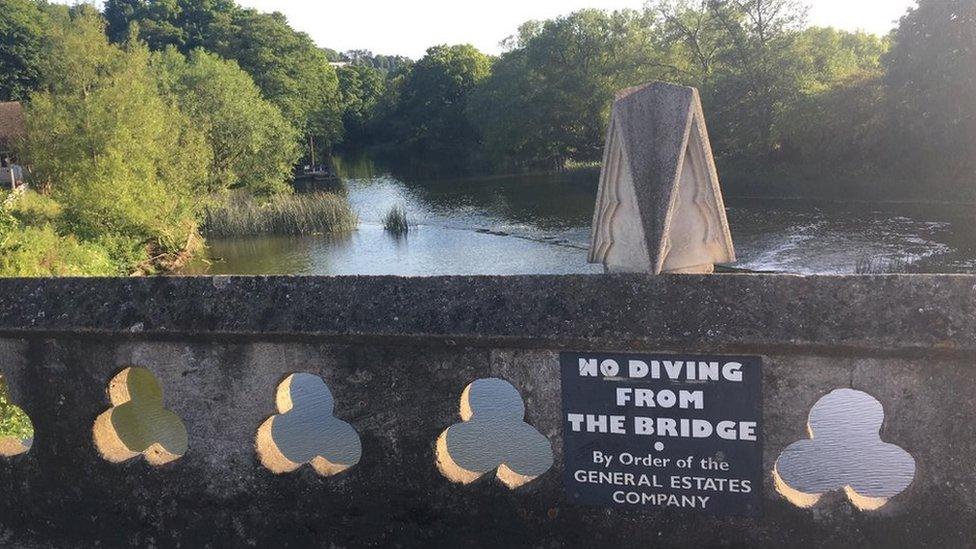
Two men died on Thursday at a River Avon location popular with swimmers
The easing of lockdown restrictions coupled with scorching sunshine could tempt some of us to take a dip to cool off. But a spate of recent deaths has prompted stark warnings over the dangers of swimming in the sea and rivers. What can you do to stay safe?
The weekend could see highs of 28C (82F) and from Monday up to six people from different households will be able to meet in open spaces.
The heat and the excitement of seeing family and friends could lead to people getting into trouble at beauty spots across England, the Royal Society for the Prevention of Accidents (RoSPA) fears.
David Walker, leisure safety manager at RoSPA, points out that lifeguard provision around the coast is not at the level it was before the coronavirus outbreak, "so if you get into trouble there may be no-one to save you".
The RNLI stopped patrols in March and earlier this month announced plans to patrol 70 beaches this summer rather than its usual 240. It has been criticised for its reduced presence, but says it's been placed in an "impossible situation".
Trouble in the water
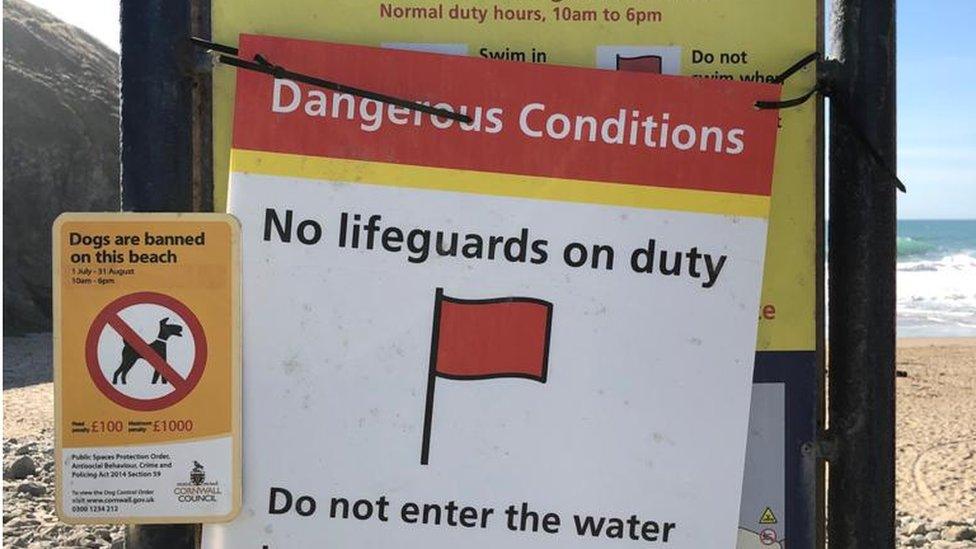
Two young men who had travelled from Swindon to Bath intent on "enjoying the nice weather" died on Thursday at a River Avon location popular with swimmers.
A 22-year-old man died after falling off a sea scooter at Teignmouth on Tuesday.
A teenage girl trapped beneath a capsized boat and a man who was pulled out of the sea off the Cornwall coast died on Monday., while another man is in a serious condition in hospital after being found face down in the water at Porthtowan.
Trained lifeguard and surf coach Toby Pearce was rescued by an off-duty RNLI lifeguard after getting stranded at sea at Cornwall's Sennen Cove on Tuesday.
A search has been taking place for a teenage snorkeller missing off the Dorset coast since Wednesday.
Claire Huggins of the Royal Life Saving Society, external says it is impossible to stop people swimming.
"At this time of year and with this type of weather it is really tempting to go for a swim," she says.
"People are looking for places to cool off and that is understandable, we just urge people to take precautions."
A total of 34 people died while swimming in open waters in 2018, which is the most recent figure released by the National Water Safety Forum, external.
Incidents in 2018
263accidental drownings
74of them in rivers
93were walking or running and fell in
34drowned while swimming
17were jumping or diving in
Hidden dangers include currents, submerged debris and pollutants, but Ms Huggins says one of the biggest threats is unexpected cold water shock, a physical reaction to sudden immersion.
"Everyone is susceptible. It can be deadly even to the strongest swimmers, you can still be caught out," she says.
"The natural reaction when immersed in cold water is to gasp, and if you do that in water where you are out of your depth you can see how that can bring on panic.
"All of a sudden that scenario can become very serious and potentially life-threatening."
Anyone entering the water should consider the possibility of such a shock, Ms Huggins says, and if possible prepare for it by entering the water slowly.
Other Royal Life Saving Society advice includes:
Swim at supervised or lifeguarded sites
Swim parallel with the shore
Swim with friends or family
Look for signs and advice about the specific dangers at your location
Think about what you will do if something goes wrong
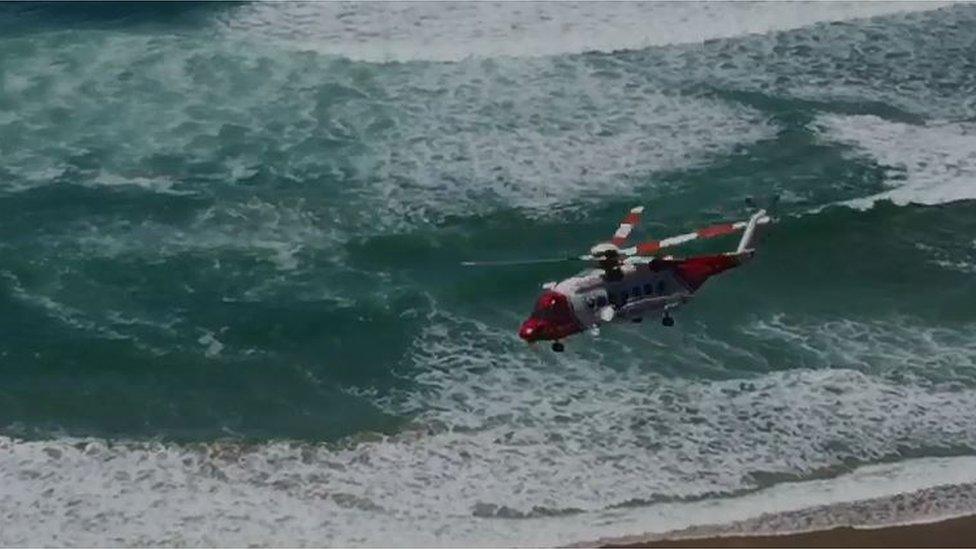
A man who was pulled from the sea at Porthtowan by an off-duty RNLI lifeguard is in a serious condition in hospital
The RNLI has also issued advice on what to do if you accidentally end up in water, which includes floating to regain breathing control before trying to swim.
And Ms Huggins warns that sub-surface conditions, like currents, can suddenly change even in seemingly still waters, such as at lakes or quarries.
"That's the unpredictability of water," she says.
The society also encourages people to know what to do in an emergency, where the nearest equipment is and who to call.
"In the UK it would be 999 but if you are going abroad, make sure you know the emergency service number," Ms Huggins says.
Cornwall surfer says RNLI technique saved her life
- Published30 May 2019
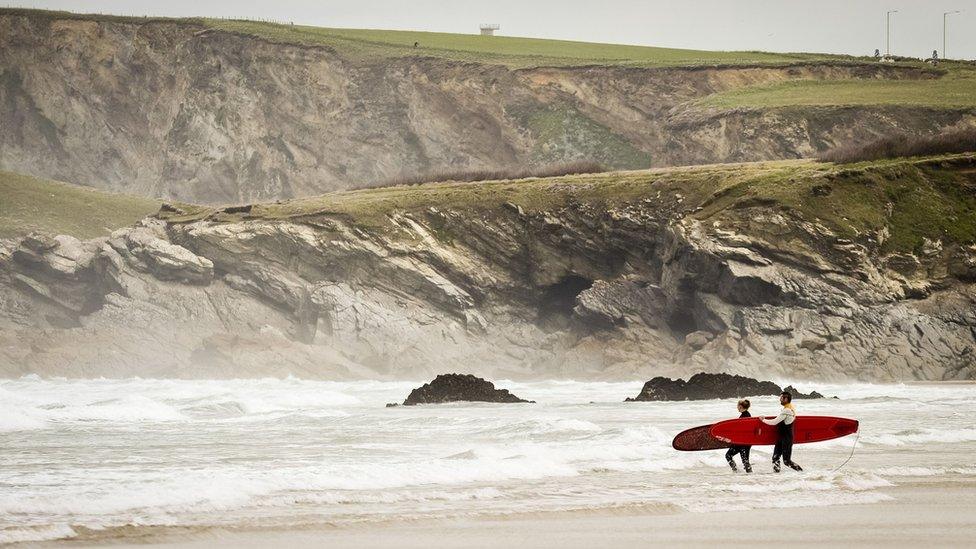
- Published1 July 2022

- Published22 May 2020
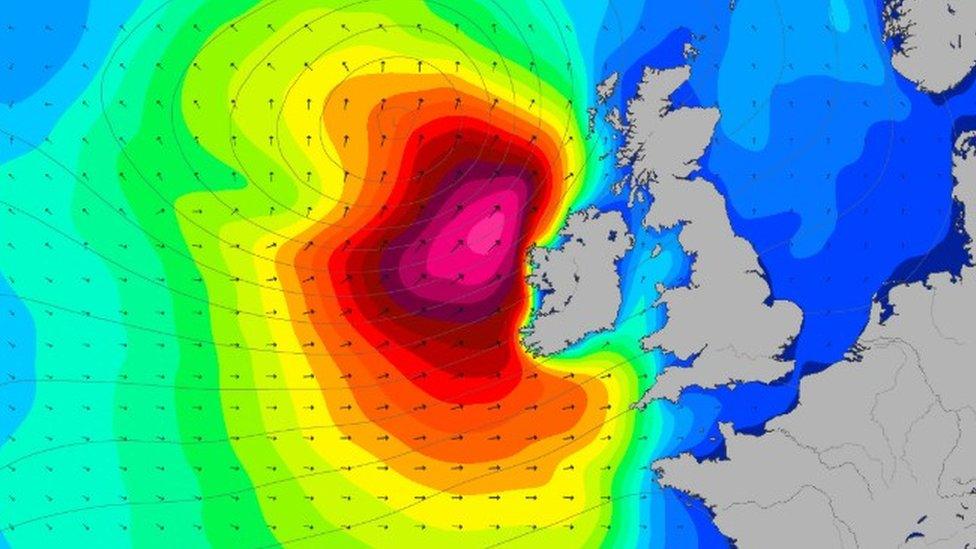
- Published28 May 2020

- Published26 May 2020

- Published25 May 2020
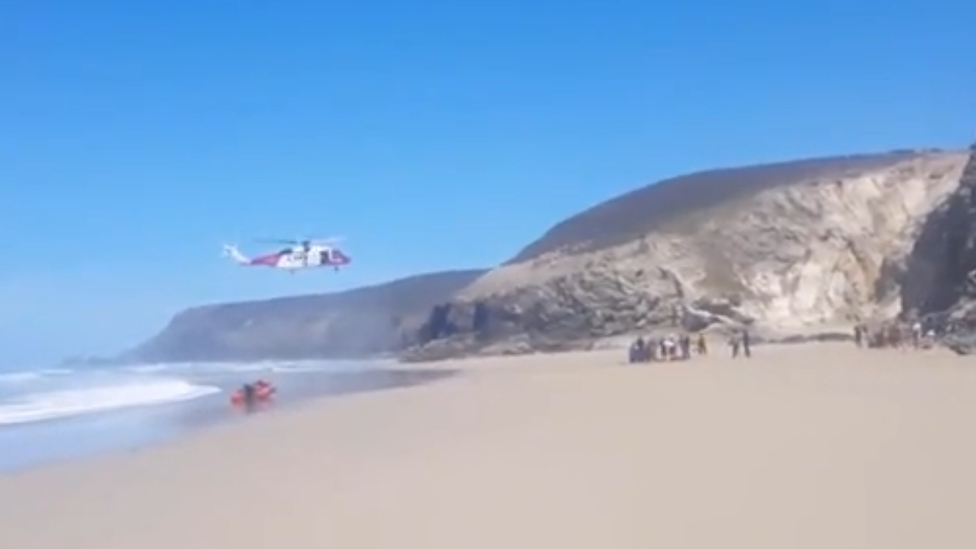
- Published27 May 2020
